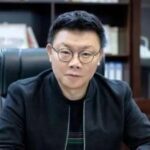- Home
- Billionaires
- Investing Newsletters
- 193CC 1000
- Article Layout 2
- Article Layout 3
- Article Layout 4
- Article Layout 5
- Article Layout 6
- Article Layout 7
- Article Layout 8
- Article Layout 9
- Article Layout 10
- Article Layout 11
- Article Layout 12
- Article Layout 13
- Article Layout 14
- Article Sidebar
- Post Format
- pages
- Archive Layouts
- Post Gallery
- Post Video Background
- Post Review
- Sponsored Post
- Leadership
- Business
- Money
- Small Business
- Innovation
- Shop
Recent Posts
Zhang Zhidong: The Architect of Self-Strengthening and Modernization in Late Qing China

Zhang Zhidong was a prominent statesman, scholar, and reformer during the late Qing Dynasty, a period marked by deep political, social, and military upheaval in China. His life and work spanned a time of significant transformation, and his influence was instrumental in shaping the trajectory of China’s modernization efforts during the 19th and early 20th centuries. Born on September 2, 1837, in Xingyi, Guizhou province, Zhang rose through the rigorous imperial examination system, achieving the highest degree, the jinshi, in 1863. This accomplishment laid the foundation for his entry into the Qing bureaucracy, where he quickly distinguished himself as a capable administrator and reform-minded official.
Zhang Zhidong was a staunch Confucian and held a deep belief in the value of Chinese traditions. However, he was also pragmatic and recognized the need for China to adopt Western technologies and systems to preserve its sovereignty in the face of growing foreign pressures. This duality in his philosophy was famously encapsulated in his doctrine: “Chinese learning as the essence, Western learning for practical use.” This principle guided his many reform efforts and became a cornerstone of the Self-Strengthening Movement, which aimed to modernize China while maintaining its cultural identity.
Throughout his career, Zhang served in several key provincial roles, including as governor of Shanxi, viceroy of Liangguang (overseeing Guangdong and Guangxi), and most notably as viceroy of Huguang, where he governed the strategically vital provinces of Hubei and Hunan. It was in these posts that he implemented significant reforms in education, military, and industry. One of Zhang’s major contributions was the establishment of modern educational institutions. He founded schools that integrated Western science and technology into the traditional curriculum, including the famous Liangjiang Higher Normal School, which later evolved into Nanjing University. Zhang understood that for China to compete with Western powers, it needed a new generation of officials and military leaders educated in modern disciplines.
Zhang was also instrumental in the development of a modern military force. He spearheaded the creation of the Hubei Military Academy, where Chinese officers were trained in Western tactics and armed with modern weapons. Under his leadership, modern arsenals and shipyards were established, including the Hanyang Arsenal, which became one of the most advanced weapons manufacturing centers in China at the time. These efforts contributed to the emergence of a professionalized military that would later play significant roles in both the fall of the Qing Dynasty and the early years of the Republic of China.
Despite his commitment to modernization, Zhang remained deeply loyal to the Qing Dynasty and the Confucian order. His reforms were always framed within the context of preserving the empire rather than transforming it fundamentally. This conservatism limited the scope of his reforms but also made them more palatable to the entrenched imperial bureaucracy. Zhang walked a fine line between innovation and tradition, seeking to strengthen China without undermining its foundational values.
Zhang Zhidong’s political acumen was particularly evident during the turbulent years of the late 19th century, especially following China’s defeat in the First Sino-Japanese War (1894–1895). This defeat exposed the weaknesses of China’s military and governance structures and sparked widespread calls for reform. Zhang supported the Hundred Days’ Reform of 1898, a short-lived but significant attempt at sweeping modernization led by Emperor Guangxu. Though the reforms were eventually quashed by the conservative Empress Dowager Cixi, Zhang managed to maintain his position and continued to implement moderate reforms within his jurisdiction.
In the early 20th century, Zhang played a crucial role in the drafting and implementation of the New Policies (Xinzheng), a series of reforms aimed at overhauling China’s political, military, and educational systems. He advocated for the establishment of constitutional governance and supported the formation of provincial assemblies, laying the groundwork for the eventual development of a parliamentary system. Though these efforts came too late to save the Qing Dynasty, they marked a significant shift in Chinese political thought and contributed to the emergence of modern political institutions.
Zhang’s later years were marked by declining health and political influence. He retired in 1909 and died on October 4, 1909, just two years before the fall of the Qing Dynasty in 1911. Despite his passing, Zhang Zhidong’s legacy lived on through the institutions he helped build and the ideas he championed. His work laid the foundation for many of the modernization efforts that would continue under the Republic of China and later the People’s Republic of China.
Zhang Zhidong’s life reflects the complexities of reform in a society deeply rooted in tradition. He was neither a radical nor a reactionary but rather a reformist who believed in gradual, pragmatic change. His efforts to blend Chinese values with Western techniques highlight the challenges of modernization in a non-Western context, a struggle that continues to resonate in contemporary China. Today, Zhang is remembered as one of the most influential figures of the late Qing era, a man who sought to steer China through one of its most perilous periods with wisdom, foresight, and a deep sense of duty.
- 19th century China
- 19th century modernization
- China’s technological reforms
- Chinese bureaucracy
- Chinese cultural identity
- Chinese diplomacy
- Chinese education reform
- Chinese foreign policy
- Chinese history
- Chinese military reform
- Chinese modernization
- Chinese nationalism
- Chinese philosophy
- Chinese political thought
- Chinese politics
- Chinese reformers
- Chinese reformers biography
- Chinese sovereignty
- Chinese-Western fusion
- Confucian values
- constitutional monarchy China
- constitutional reform China
- educational institutions in China
- Empress Dowager Cixi
- Guangxu Emperor
- Hanyang Arsenal
- history of Chinese education
- history of Chinese military
- history of Qing Dynasty
- Hubei military academy
- Hundred Days’ Reform
- industrialization in China
- influential Chinese officials
- late imperial China
- late Qing era
- legacy of Zhang Zhidong
- Liangjiang Normal School
- modernization in China
- Qing Dynasty
- Qing Dynasty collapse
- Qing governance
- resistance to colonization
- Self-Strengthening Movement
- Sino-Japanese War
- traditional vs modern China
- viceroy of Huguang
- Western influence in China
- Xinzheng reforms
- Zhang Zhidong
Recent Posts
Categories
- 193 Countries Consortium Partner1
- 193cc Digital Assets2
- 5G1
- Aerospace & Defense48
- AI37
- Arts3
- Banking & Insurance11
- Big Data3
- Billionaires1,506
- Boats & Planes1
- Business332
- Careers13
- Cars & Bikes79
- CEO Network1
- CFO Network17
- CHRO Network1
- CIO Network1
- Cloud10
- CMO Network18
- Commercial Real Estate7
- Consultant1
- Consumer Tech194
- CxO1
- Cybersecurity73
- Dining1
- Diversity, Equity & Inclusion4
- Education7
- Energy8
- Enterprise Tech29
- Events11
- Fintech1
- Food & Drink2
- Franchises1
- Freelance1
- Future Of Work2
- Games149
- GIG1
- Healthcare79
- Hollywood & Entertainment203
- Houses1
- India’s 1000 Richest1
- Innovation46
- Investing2
- Investing Newsletters4
- Leadership65
- Lifestyle11
- Manufacturing1
- Markets20
- Media327
- Mobile phone1
- Money13
- Personal Finance2
- Policy569
- Real Estate1
- Research6
- Retail1
- Retirement1
- Small Business1
- SportsMoney42
- Style & Beauty1
- Success Income1
- Taxes2
- Travel10
- Uncategorized15
- Vices1
- Watches & Jewelry2
- world's billionaires1,475
- Worlds Richest Self-Made Women2
Related Articles
Francis Choi: The Toy Tycoon Behind a Billion-Dollar Empire
Francis Choi Chee-ming, often referred to as Hong Kong’s “King of Toys,”...
By 193cc World's BillionairesJune 6, 2025Francine von Finck and the Legacy of a Discreet Fortune
Francine von Finck, a name that commands respect in elite business circles,...
By 193cc World's BillionairesJune 6, 2025The Life and Legacy of Stefano Pessina
Stefano Pessina, one of the most influential figures in the global pharmaceutical...
By 193cc World's BillionairesJune 6, 2025John Morris: A Life of Vision, Growth, and Legacy
John Morris, the founder of Bass Pro Shops, is an iconic figure...
By 193cc World's BillionairesJune 6, 2025















Leave a comment